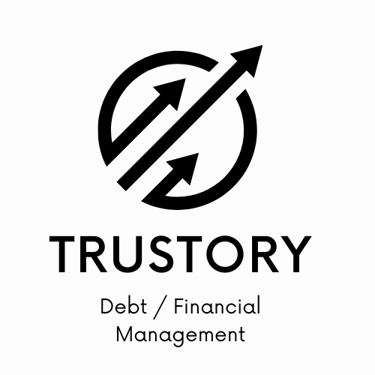How to Start Investing While Paying Off Debt:
A step-by-step guide for South Africans
Charlé Lombard
7/22/20254 min read


A Step-by-Step Guide for South Africans
If you’re living from pay cheque to pay cheque, struggling with debt, and wondering if you’ll ever be able to invest, you’re not alone. Many South Africans feel trapped by their monthly bills and rising debt, believing that investing is only for the wealthy or those who are already financially secure. But here’s the truth: you can start investing while you’re still paying off debt—and doing so can change your entire outlook on money.
I know this because I’ve been there myself. In 2019, I was retrenched from my job in the media industry. Up until that point, I never thought much about saving or investing. My focus was just on making it to the end of the month. But losing my job was a wake-up call. Suddenly, I realised how important it is to save for a rainy day and to have a plan for the future. That’s when my mindset around money, budgeting, and spending completely changed.
Why You Shouldn’t Wait to Start Investing
It’s easy to think, “I’ll start investing once I’m out of debt.” But the reality is, life rarely gives us the perfect moment. If you wait until all your debts are paid off, you might never get started. The key is to find a balance—paying down your debt while also building a habit of investing, even if it’s just a small amount at first.
Step 1: Get Real About Your Finances
The first step is to get honest about where your money is going. When I started, I used the 50-30-20 budgeting rule:
50% of my income went to essentials (like rent, groceries, and transport)
30% to wants (like eating out or entertainment)
20% to savings and debt repayment
When I looked at my debt, I was shocked at how much I was paying in interest every month. It felt like throwing money away. That realisation motivated me to pay off as much debt as I could, as quickly as possible.
Step 2: Pay Yourself First
One of the hardest parts of this journey was lowering my standard of living for a while. It’s tough to cut back, but I found a trick that worked for me: I started paying my investment first, before anything else. I call it my “pay yourself first” principle. Even if it was a small amount, I made sure it went straight into my investment account as soon as I got paid. This helped me build the habit and made investing feel like a non-negotiable part of my budget.
Step 3: Choose the Right Investment Platform
When you’re just starting out, it’s important to pick an investment product that’s easy to use and fits your budget. I chose DuePoint’s AccessWealth product because I could manage my monthly contribution and track my growth right from an app on my phone. This made it simple to see my progress and stay motivated.
There are many options out there, so look for one that lets you start small and increase your contributions over time. The most important thing is to get started, even if it’s just R100 a month.
Step 4: Tackle Your Debt Strategically
While you’re investing, don’t ignore your debt. Focus on paying off high-interest debts first—these are usually credit cards or personal loans. Every rand you pay off in high-interest debt is money you’re no longer losing to interest charges. It’s a win-win: you’re reducing your financial stress and freeing up more money to invest in the future.
Step 5: Keep Going, Even When It’s Hard
There will be months when it feels impossible to keep up with both debt payments and investments. That’s normal. The important thing is to keep going. Start small, and as your debt goes down or your income increases, put more into your investment. Think of it like running a race—you have to start, and then you just keep putting one foot in front of the other.
My Biggest Lesson: Don’t Wait for the “Perfect” Time
Looking back, I wish I had started investing when I was still financially stable. If I had, I’d be much further ahead today. But I’m grateful I started when I did. The biggest lesson I’ve learned is that it’s never too late to take control of your finances. The sooner you start, the better off you’ll be.
Advice for Anyone Feeling Overwhelmed
If you’re feeling overwhelmed by debt and think investing is out of reach, my advice is simple: just start. Start small, but start. Even R50 or R100 a month is enough to build the habit. Over time, you’ll be amazed at how your mindset shifts and how your financial situation improves.
Ready to Take the First Step?
If you’re ready to break free from debt and start building your future, Trustory is here to help. We offer a free credit assessment to see if we can save you money on your monthly debt payments. Every rand you save on debt is a rand you can invest in your future.
Visit our investment opportunity page to see how easy it is to get started. We’ll guide you through the process, show you the value of investing, and help you sign up so you can start building wealth—no matter where you are on your financial journey.
Don’t wait for the perfect moment. Start today. Contact Trustory for your free credit assessment, and let’s see how much you can save and invest for a brighter tomorrow.
Explore our professional services for your needs.
Contact
Articles
Admin@trustory.me
082 821 2911
© 2024. All rights reserved.
